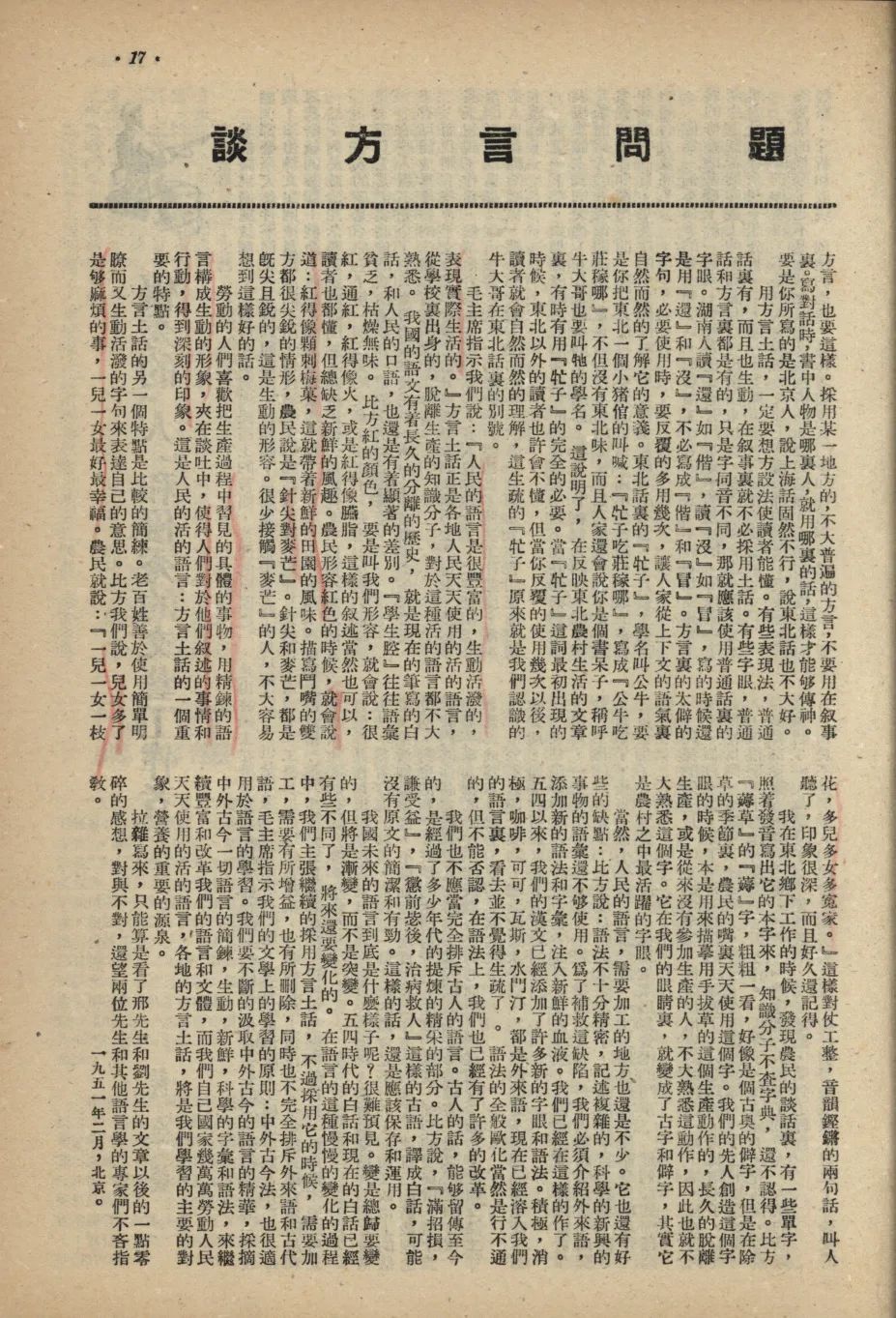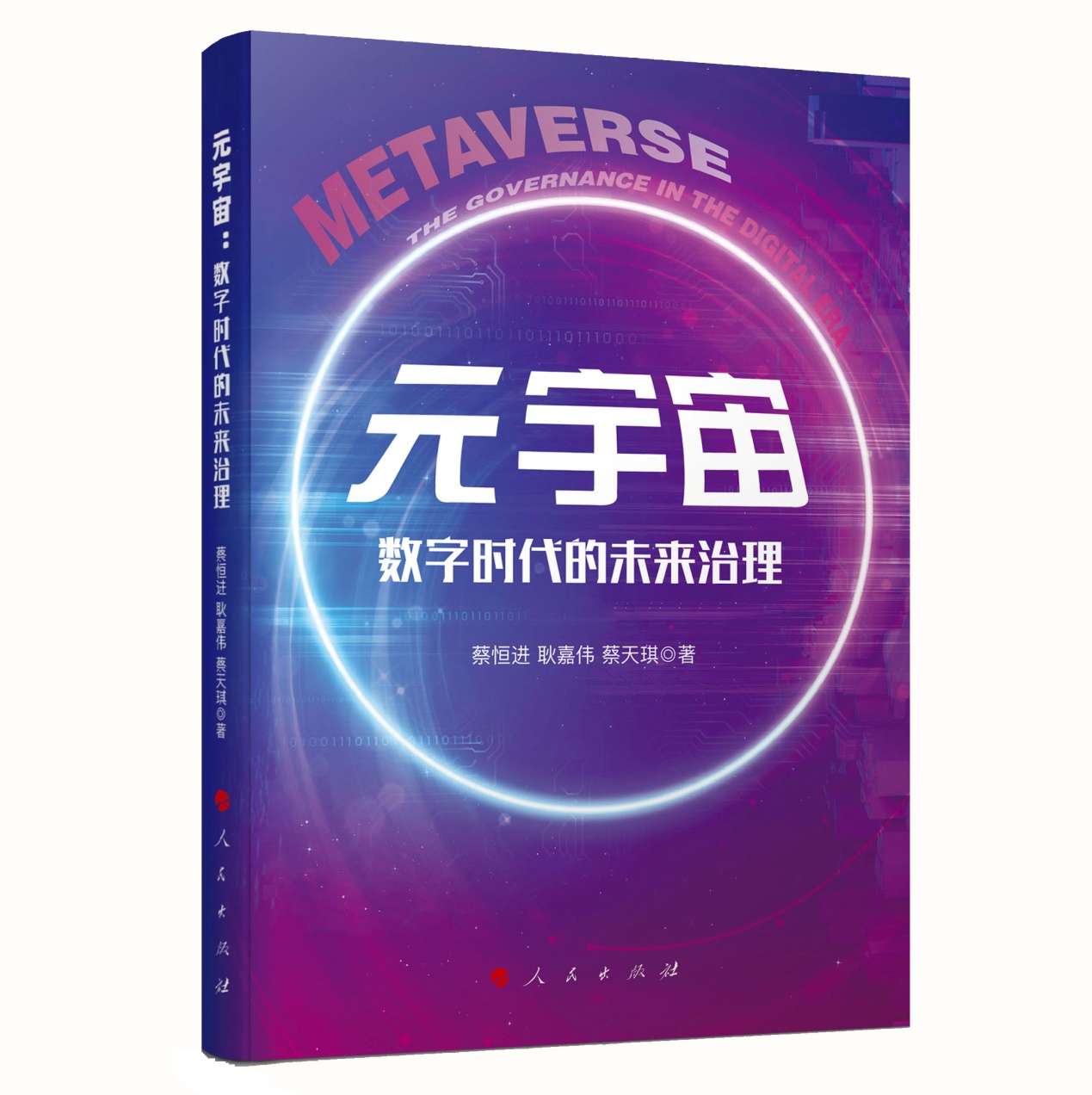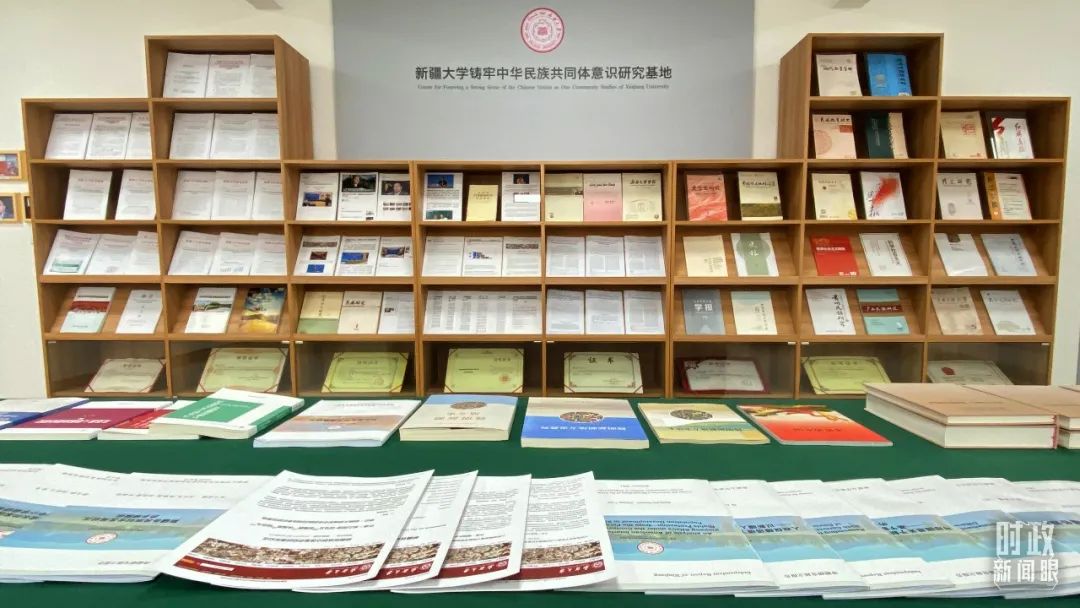Zhou Libo: Talking about dialect issues
Author:Art newspaper Time:2022.08.04


After reading the article of Xing Gongxuan and Mr. Liu Zuoyu, I also wanted to come together to talk about my views on this issue.
There are a lot of questions involved in the two gentlemen. This article cannot be discussed one by one. I only talk about some bites of feelings based on the experience of creative practice.
As far as I know, in the past and present, no one officially proposed the slogan of "dialect literature", and no one proposed this slogan "as one of the strategies for the reactionary ruling class". Naturally, literature is one of the weapons of fighting against the enemy, but it is not the text, which mainly refers to content. Text, dialect, "I can go, Kou can go", and both of us can use it. In the same block word, Chiang Kai -shek bandits helped to talk about reactionary nonsense. We used to write revolutionary articles, the difference is mainly content, not text. In the May 4th era, Chinese characters had a significant reform. At that time, most of the Chinese characters were conservative and even reactionary characters. But soon, the reactionary ruling class, especially the Chiang Kai -shek gangs, also used vernacular. The so -called "nationalist" writers of the Jiang bandit were created in vernacular, but they did not change their reactionary. Face and essence. This also illustrates the basic sign of the revolution of literature, not text, but content.
Mr. Xing said: In the past, we wrote farmers and used dialects. Now the nation's liberation and unification, "Especially today after the people's political consultation meeting was held", it seems that we can no longer use dialects to write farmers. He also said in another article: The slogan "Dialect Literature" "is not to guide us to look forward, but to guide us to look back; not to guide us s things."
As mentioned earlier, no one puts forward the slogan of "dialect literature", but in the past, we used dialects to write to write farmers, and we will also use dialects in the future. We still have to write farmers. As for whether the dialect will guide if we "look back" and "split"? I thought it wouldn't. Stalin said right: "Dialects and sync words are the veins of the language of the whole people, and obey the language of the whole people." In the use of dialects Improvement makes it suitable for expressing the actual life of the people.
Mr. Xing asked again: "Today, should we create with a unified national language in the development? (That is to say, in our creation, we must properly avoid local soil dialects.) Still Sichuan dialect to create creation (What means that you use it in our creation and emphasize those local earthen words) "
I thought we should continue to adopt a large number of dialects in various places in our creation, and continue to use a large number of local soil. If you do n’t use the vivid and lively use of the people ’s verbally every day, and suitable for the local soil that is suitable for expressing actual life, our creation will not be wonderful, and the unified national language will be just empty talk, let alone there will What "develop".
It is a practical problem to use dialect problems in creation. Our text is uniform. The Chinese written on the paper is the consistent block of the country. The dialects we speak are very many, very complicated. Especially in the south, there is not only significant differences between the accents between provinces and provinces. In some areas of inconvenient transportation, the accents between counties and counties are different. However, as Mr. Xing said, the northern dialect, especially the dialects of Beijing, has a trend of the standard language of the Chinese Han nationality. The words of all provinces in the north are roughly the same. There are many people who know, there are only sound, and words that cannot be written, less. The southern dialects, especially the parts of the parts of Guangdong, Fujian, and Jiangsu and Zhejiang, are not common nationwide. Some dialects in these places are written on the paper and asked foreigners to see it, which seems to be foreign words. Such dialects should not be adopted. The creation of Lu Xun and Mr. Mao Dun does not use their hometown dialects, which is a good example. But it is the southern dialect that is difficult to understand. We should also learn its rich vocabulary and exquisite sentences to improve our language. "Like Shay" has become Mandarin. When I first used this, there were very few people who knew except Jiangsu and Zhejiang, but now, all those who can read books and newspapers understand its meaning. The northern dialect is generally large. Except for the areas with inconvenient transportation in the country, most of them can understand the language in the "Dream of Red Mansions". In fact, this is the dialect of Beijing.
In terms of creation, we have to delete some dialects and earth words anywhere. It is to treat the more perfect Beijing dialect. In a certain place, there are not common dialects, and do not use it in narrative. When writing a dialogue, where is the character in the book, you can use it where you use it. If you are written by Beijingers, it is not good to speak Shanghai dialect.
With dialect and soil, you must try to make readers understand. Some expression, Mandarin, and vivid, there is no need to use soil dialect in the narrative. Some words, Mandarin and dialects are both, but the words are different, then the words in Mandarin should be used. People in Hunan read "back" like "” "," no "like" 冒 ", and when writing, they still use" returning "and" no ", without having to write" 偕 "and" 冒 ". The words in the dialect are too remote. When necessary, use it a few more times to let people naturally understand its meaning from the context. The "Xunzi" in the Northeast dialect, the scientific name is the Bulls. It is a nerd who calls Brother Niu to call it the scientific name. This shows that in articles reflecting the rural life of the Northeast, sometimes it is completely necessary for "sister -in -law". When the word "sister -in -law" first appeared, readers outside the Northeast may not understand, but when you repeatedly use it several times, the reader will naturally understand. Brother Niu's nickname in Northeast dialect. Chairman Mao instructed us to say, "The language of the people is very rich, lively, and expressing actual life." Dialects and Turkish dialects are the living language used by the people in various places every day. From school, from school, out of production intellectuals. Not familiar with this living language. Chinese language has a long history of separation, that is, the vernacular written in the current pen, and the speaking of the people, there are still significant differences. "Student cavity" often lacks vocabulary and is boring. The color of the red red, if we call us described, will say: Very red, red, red like fire, or red like rouge. Of course, this narrative is also possible. Readers also understand, but they always lack fresh fun. When farmers describe red, they say: red like a thorn plum fruit, which has a fresh pastoral flavor. Both sides who described the mouth were very sharp, and the farmers said it was "the tip of the needle to the Mai Mang". Needle tip and wheat mang are both sharp and sharp, which is vivid description. People who rarely come into contact with "Mai Mang" are not easy to think of such good words.
Labor people like to put the specific things learned during the production process, and use the refined language to compose a vivid image, and to be sandwiched in the talk, making people deeply impress the things and actions they narrate. This is an important feature of the people's living language: a dialect.
Another characteristic of dialects and Turkey is relatively concise. People are good at using simple and lively and lively words to express their meaning. For example, we say that more children are troublesome, and they are the best and happiest. The farmers said, "One child, one daughter, one flower, more, more daughter, more daughter, more and more enemies." In this way, the two sentences of fighting for work, the charm of the rhyme, were listening to it, and I was very impressed, and I still remember it for a long time.
When I was working in the Northeast countryside, I found that there were some words in the conversation of farmers. I wrote the words as a pronunciation. The intellectuals did not check the dictionary and did not recognize it. For example, the word "” "of" ”", a rough look, seems to be a remote word of ancient Olympic, but in the weeding season, the word of the peasants uses this word every day. When our ancestors created this word, this production action was used to describe the production of grass, long -term separation of production, or those who never participated in production. Familiar with this word. In our eyes, it becomes ancient and remote words, in fact, it is the most active word in the countryside.
Of course, there are still many places where the language of the people needs to be processed. It also has some disadvantages: for example, the grammar is not very precise, the description is complicated, and the vocabulary of the emerging things is not enough. In order to remedy this defect, we must introduce foreign language, add new grammar and vocabulary, and inject fresh blood. We are already doing this. Since May 4th, our Chinese text has added many new words and grammar. Positive, negative, coffee, cocoa, gas, watermen, all foreign languages. Now it has been dissolved in our language, and it does not feel rusty. Of course, the full -time Europeanization of grammar does not work, but it cannot be denied that in grammar, we have also had many reforms.
We should not completely exclude the language of the ancients. If the ancients were able to stay so far, it was a wonderful part of how many years of refinement. For example, the ancient sayings of "full moves, humility benefit", "punish the front and after the cure and save people", translated into vernacular, there may be no simplicity and energy of the original text. In this case, it should still be preserved and used.
What exactly does our future language look like? It's hard to foresee. Change is always becoming, but it will be gradient, not mutations. The vernacular of the May 4th era is a bit different from the current vernacular, and it will change in the future. In the process of slow changes in language, we advocate continuing to adopt dialect and soil dialect, but when it is adopted, it needs to be processed. The principles of the chairman instructed our literature: Chinese and foreign laws are also suitable for language learning. We must continuously draw the essence of ancient and modern Chinese and modern Chinese, pick all the simplified, vivid, fresh, scientific words and grammar of all the languages of ancient and modern ancient and modern, to continue to enrich and reform our language and style. The living language used every day, dialects and soil dialects will be the main object of our learning, important sources of nutrition. It can only be regarded as a bit of fragmented feeling after reading the articles of Mr. Xing and Mr. Liu, right and wrong. I also hope that the two gentlemen and other linguistic experts will not hesitate. In February 1951, Beijing.
(Originally containing "Literature and Art" 1950, No. 10)
WeChat editor: Lu Yimeng
- END -
"Yuan Universe: Future Governance of Digital Age" Published

In order to help the majority of readers understand the direction of the Yuan univ...
From four keywords, see General Secretary Xi Jinping's trip to Xinjiang

From July 12th to 15th, General Secretary Xi Jinping inspected in Xinjiang.4 days,...